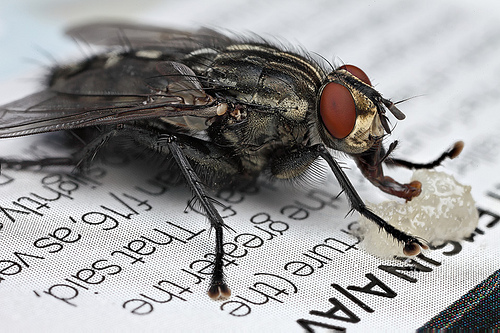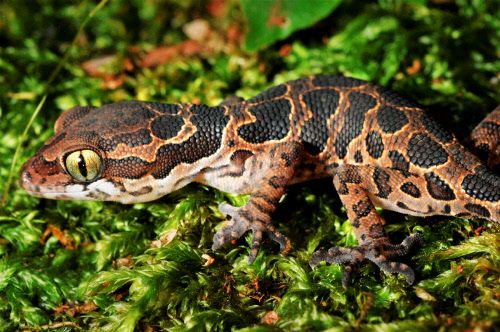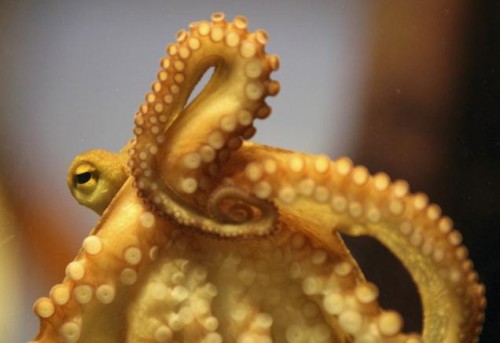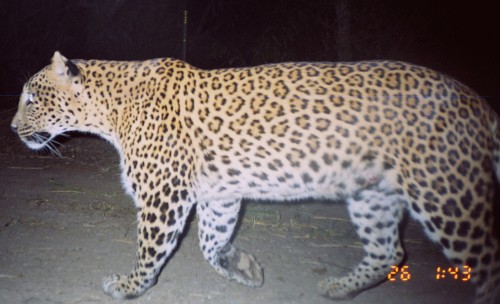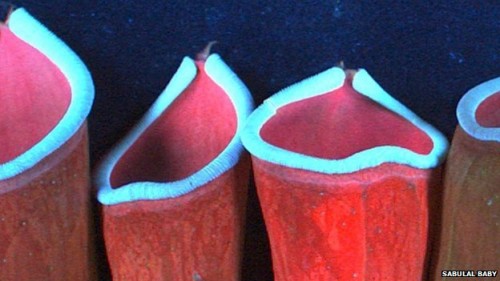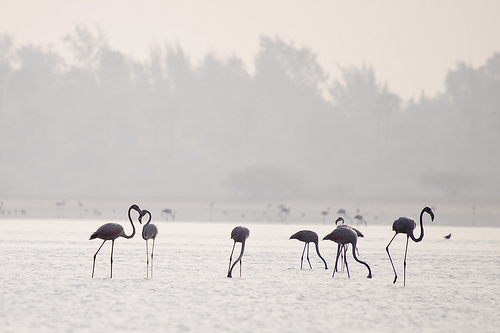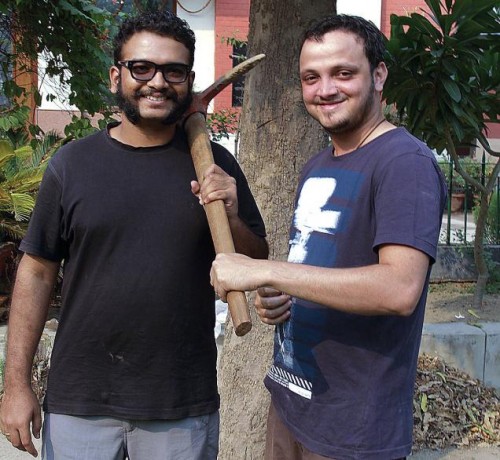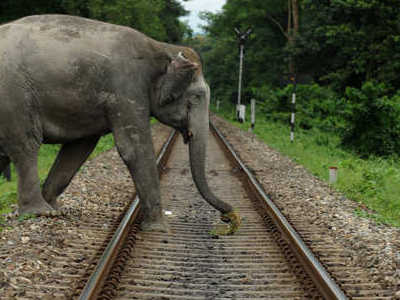Data collection is hard work and though newer technologies like the camera trap have made the job a bit easier for researchers the biggest help in the future may come from tiny insects like flies – the new bio-helpers for field research worldwide!
Armed…not Dangerous
It is not men at war in the jungles of Assam and rest of the country, but the battle between vintage guns held by forest guards and new age ammunitions by poachers.The rotting corpses of the rhinos killed everyday are proof of who is winning this one sided war.
After 135 Years ‘Extinct’ Gecko is Seen Again
A gecko that remained hidden and was believed to be extinct was re-discovered recently after 135 years. Called the Jeypore Gecko (Geckoella jeyporensis) it was found in Andhra Pradesh and Orissa by scientists who spent more than two years looking for this little creature.
How an Octopus in Kerala backwaters is Puzzling Scientists
Octopuses were recently spotted in the serene backwaters of Kochi. If you are asking why this is odd it is becausejust like freshwater fishes cannot survive in saltwater seas and oceans, and vice versa, octopuses too cannot live in freshwater. Their presence in the backwaters of Kerala is only a proof, that these freshwater arteries of a verdant state are becoming more salty.
Leopards as Neighbours
“We are running out of real estate!” cried a celluloid character in a movie. But if anything is true in the world we live in today, it is this fact, that we are all indeed running out of living space, especially because of the burgeoning human population. Now a new camera trap study in India has revealed how lack of space has led leopards and other wildlife to share space with humans, that too in highly populous locations.
In the Business of Killing
There was a time in India when Emperors surrounded by their noblemen would mount the back of an elephant and venture into the jungles to kill a beast. The time of these erstwhile trigger friendly maharajas may well have gone, but the hunt for animals is still on and has taken an uglier shape than ever. It is not royalties anymore but commoners who kill for profit. Wildlife crime is today is a profitable business and the biggest threat to animals and the survival of the planet itself.
Turtle Nesting Sites facing the Heat
For turtles, nesting grounds are the most secure place on earth. They may be wandering all across the world oceans throughout the year, but it is here that they come year after year to lay eggs and bring the next generation into the world. Sadly, marine scientists have found that turtle nesting grounds in many parts of the world, including India are vanishing due to climate change. What is even more distressing is that many of these may have already faced irreparable damage.
Carnivorous Plants Emit Blue Glow to Attract Prey
It can be aptly termed fatal attraction. Scientists in Kerala were surprised to discover carnivorous plants that attract insects by acting as blue fluorescent lamps! This is probably the first time in the world that a carnivorous plant has been discovered to reveal a blue glow to catch its prey.
Flying towards Death at Nalsarovar Lake
For many birds around the world, Gujarat’s Nalsarovar lake is home away from home, where they spend the cold winter months. Designated as a wetland of international importance, the lake however is turning into a living hell. Reason being the nets, sprawling across the wide lake, and cast to bring the carefree flights of the bird to an abrupt end.
They call Themselves the Tree Planters
It is sometimes said, ‘A crazy idea can change the world’ and if someone can prove this to be true, it has to be two young Indian men, who thought of making their country greener through what they call Project 35 Trees. Armed with plant saplings and perched atop public transport vehicles, the two travelled across all states of India to plant trees and leave a message of hope.
Life Threatening Railway Tracks
A railway line that may connect Sikkim with the rest of India more easily is currently under construction between Sevoke in West Bengal and Rangpo in Sikkim. But the track might threaten the lives of many wild animals, especially elephants that frequent the same path, triggering more accidental deaths if the train movement starts.

